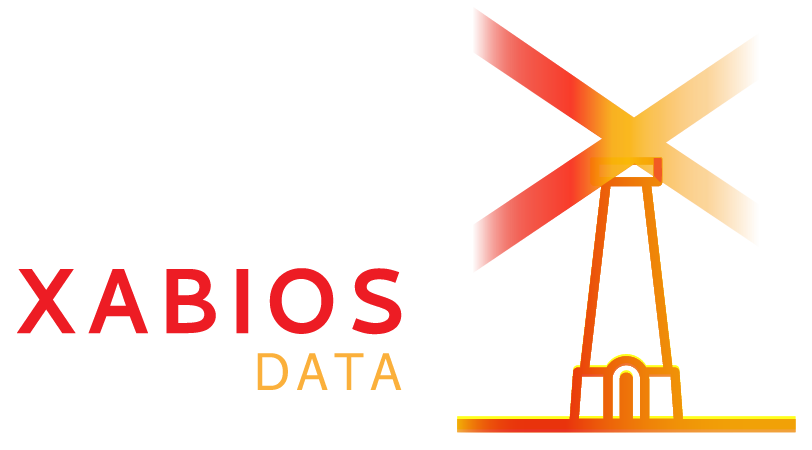
AI & Ethics
septiembre 23, 2024
Introduction
Artificial Intelligence (AI) is no longer a futuristic concept; it’s here, profoundly transforming industries and daily life. But with great power comes great responsibility. The integration of AI into various aspects of society brings a slew of ethical considerations that we can’t afford to overlook. From questions about transparency to concerns over fairness and accountability, navigating the ethical landscape of AI is crucial for ensuring it benefits humanity.
Understanding AI
Definition of AI
Artificial Intelligence refers to the simulation of human intelligence in machines programmed to think and learn like humans. These systems can perform tasks such as problem-solving, decision-making, and language translation, often at a speed and efficiency surpassing human capabilities.
Evolution of AI
AI has evolved dramatically since its inception. From early concepts and rudimentary algorithms in the 1950s to today’s advanced machine learning and deep learning technologies, AI’s growth has been exponential. Breakthroughs in computational power and data availability have propelled AI from theoretical exercises to practical applications.
Current Applications
AI is ubiquitous, influencing various sectors:
- Healthcare: AI-driven diagnostics and personalized medicine.
- Finance: Fraud detection and algorithmic trading.
- Transportation: Autonomous vehicles and traffic management.
- Retail: Customer service chatbots and personalized shopping experiences.
The Intersection of AI and Ethics
Why Ethics Matter in AI
Ethics in AI is crucial because these technologies impact real lives. Decisions made by AI systems can affect employment, personal privacy, and even life or death situations in medical contexts. Without a solid ethical foundation, AI could perpetuate biases, infringe on rights, and operate without accountability.
Historical Ethical Concerns in Technology
Technology has always had ethical implications, from the industrial revolution to the digital age. Each technological leap brings new challenges in ensuring that advancements benefit society without causing harm. AI is the latest in this lineage, demanding fresh ethical scrutiny.
Key Ethical Principles in AI
Transparency
Transparency means that AI systems should be open and understandable. Users and stakeholders need to know how AI decisions are made to build trust and ensure accountability.
Accountability
Accountability involves ensuring that there is always a person or organization responsible for AI decisions. This principle is vital to address errors and prevent misuse.
Fairness
Fairness in AI is about ensuring that AI systems do not perpetuate biases or lead to discriminatory outcomes. It’s crucial for AI to treat all individuals and groups equitably.
Privacy
AI systems often handle vast amounts of personal data. Ensuring that this data is collected, stored, and used in ways that protect individual privacy is paramount.
Transparency in AI
Importance of Transparency
Transparency helps in demystifying AI processes. When AI decisions are transparent, it fosters trust among users and stakeholders. For instance, in healthcare, knowing how an AI system diagnoses a condition can help patients and doctors trust the technology.
Challenges in Achieving Transparency
However, achieving transparency isn’t straightforward. AI algorithms, especially deep learning models, can be complex and opaque. Ensuring that these systems are explainable without compromising their efficiency is a significant challenge.
Accountability in AI
Who is Responsible for AI Decisions?
Determining accountability in AI is complex. Is it the developer who created the algorithm, the company deploying it, or the user applying it? Establishing clear lines of responsibility is crucial for ethical AI deployment.
Legal and Moral Accountability
Legal frameworks are still catching up with AI’s rapid development. There’s a need for robust laws that clearly define accountability, complemented by ethical guidelines that organizations can follow to ensure moral responsibility.
Fairness in AI
Bias in AI Systems
AI systems can inadvertently perpetuate biases present in their training data. For instance, facial recognition technology has been criticized for having higher error rates for people of color. Ensuring fairness involves rigorous testing and validation of AI systems against diverse datasets.
Ensuring Equitable Outcomes
To achieve fairness, AI systems should be designed with diverse inputs and continuously monitored for bias. Implementing fairness metrics and regular audits can help in maintaining equitable AI operations.
Privacy Concerns with AI
Data Collection and Usage
AI thrives on data. However, this data often includes personal and sensitive information. Ethical AI practices require clear consent protocols and transparent data usage policies to protect user privacy.
Protecting Personal Information
Implementing robust security measures to safeguard data is essential. Techniques like data anonymization and encryption can help protect personal information from unauthorized access and misuse.
AI and Employment
Impact on Job Markets
AI’s impact on employment is a double-edged sword. While it can create new job opportunities, it also poses a threat to traditional roles, potentially leading to job displacement.
Ethical Considerations for Workforce Transitions
Organizations and governments must consider ethical implications in workforce transitions. This includes providing retraining programs, supporting displaced workers, and ensuring that AI adoption doesn’t exacerbate unemployment.
AI in Healthcare
Benefits and Risks
AI holds significant promise in healthcare, from improving diagnostic accuracy to personalizing treatment plans. However, it also raises ethical dilemmas, such as ensuring patient data confidentiality and addressing biases in medical AI.
Ethical Dilemmas in Medical AI
Medical AI must be transparent and validated to ensure patient safety. Moreover, ethical frameworks should guide the use of AI in critical healthcare decisions to prevent harm and ensure equitable treatment.
AI in Law Enforcement
Enhancing Security vs. Privacy Invasion
AI can enhance security through predictive policing and surveillance technologies. However, this raises concerns about privacy invasion and potential misuse of power.
Ethical Implications
Law enforcement agencies must balance the benefits of AI with the ethical implications. This includes ensuring transparency, protecting civil liberties, and preventing discriminatory practices.
Autonomous Weapons and AI
Military Applications of AI
AI’s role in autonomous weapons systems is a hotly debated topic. While these technologies can enhance military capabilities, they also pose significant ethical and moral questions.
Ethical Debates on Autonomous Weaponry
The use of AI in weapons systems raises concerns about accountability, the potential for unintended harm, and the moral implications of delegating life-and-death decisions to machines.
AI Governance and Regulation
Current Regulatory Landscape
AI regulation varies globally, with some regions adopting stringent measures while others lag behind. Effective AI governance requires a balanced approach that fosters innovation while protecting ethical standards.
Need for Global Governance
Given AI’s global impact, there’s a pressing need for international cooperation and standardized regulations. Global governance can help address cross-border ethical issues and ensure consistent application of ethical principles.
Ethical AI Development
Best Practices for Developers
AI developers play a critical role in ensuring ethical AI. This involves adhering to best practices like designing for fairness, incorporating transparency, and regularly auditing AI systems.
Role of Ethical Guidelines and Frameworks
Adopting ethical guidelines and frameworks can guide developers in creating responsible AI. Frameworks like the IEEE’s Ethically Aligned Design provide valuable insights into ethical AI development.
The Future of AI and Ethics
Potential Future Ethical Challenges
As AI continues to evolve, new ethical challenges will emerge. These may include issues related to superintelligent AI, the digital divide, and the balance between innovation and control.
Preparing for an Ethical AI-Driven Future
Preparing for these challenges requires proactive measures, including robust ethical education, forward-thinking policies, and a commitment to ongoing dialogue about AI ethics.
Conclusion
AI holds immense potential to transform society for the better. However, its ethical implications must be carefully considered and addressed. By focusing on transparency, accountability, fairness, and privacy, we can harness the power of AI while safeguarding human values. The future of AI is bright, but it must be guided by a strong ethical compass to truly benefit all of humanity.
FAQs
What is AI ethics? AI ethics is the branch of ethics that examines the moral implications and challenges posed by AI technologies, focusing on issues like fairness, accountability, and transparency.
Why is transparency important in AI? Transparency is crucial in AI to build trust, ensure accountability, and allow users to understand how AI decisions are made, which is essential for ethical and responsible AI deployment.
How can AI be made fair? AI can be made fair by ensuring diverse and representative training data, implementing fairness metrics, continuously monitoring for bias, and regularly auditing AI systems for equitable outcomes.
What are the privacy risks of AI? AI poses privacy risks through extensive data collection and analysis, which can lead to unauthorized access, misuse of personal information, and potential breaches of confidentiality.
How will AI impact jobs? AI will impact jobs by automating certain tasks and roles, potentially displacing workers, while also creating new opportunities in AI development, maintenance, and oversight, necessitating workforce retraining and support.













